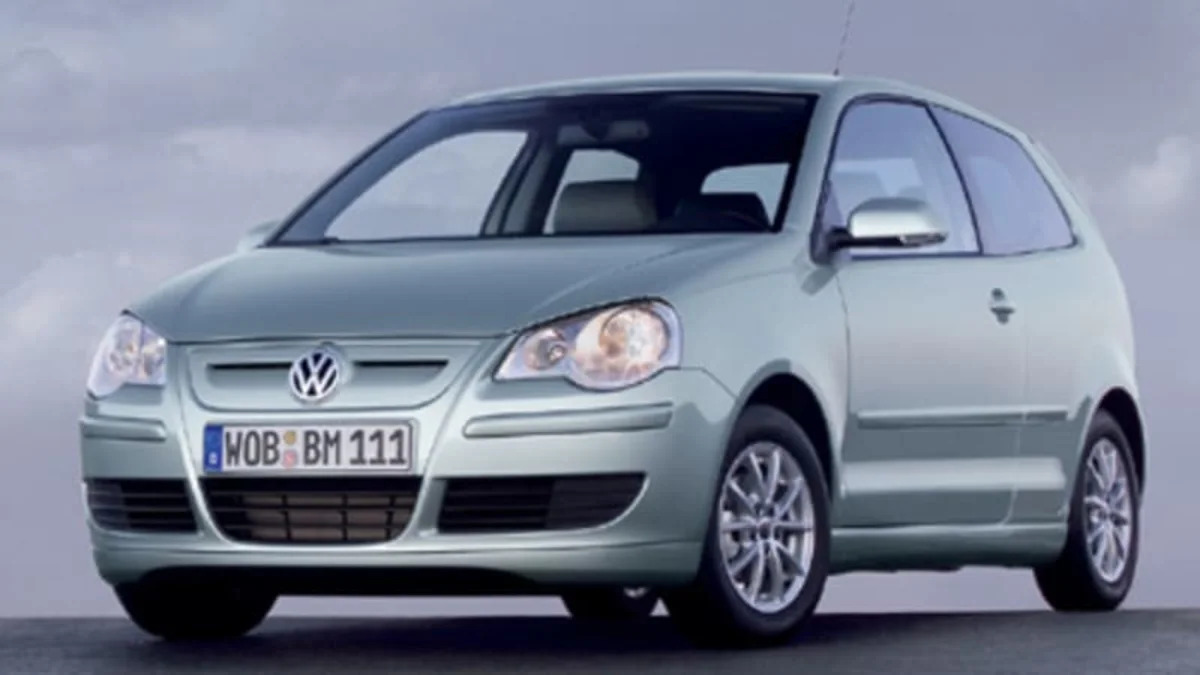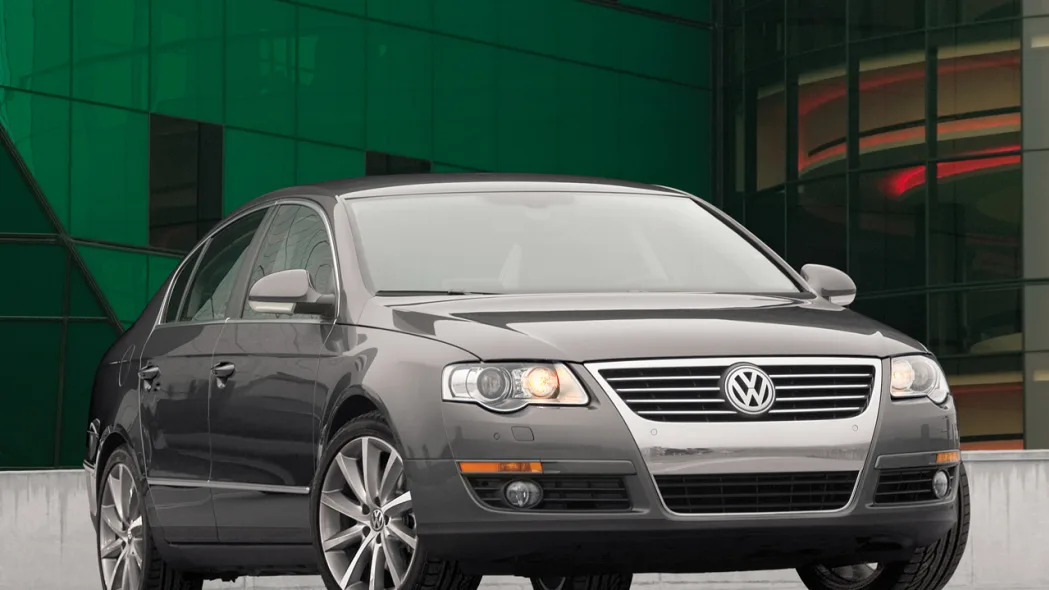Click on above image to see complete high resolution gallery.
Car and Driver have posted a feature article on the wide array of different powertrains that Volkswagen is testing in a bid to capitalise on new developments under way in a host of technologies. Ten different vehicles were available for test driving during the Volkswagen sponsored even in Valencia, Spain as Jared Gall reports:
"The mind-boggling array of vehicles present ran on six different fuels and included four different diesel-derivative engines: a current-production Polo BlueMotion diesel; a next-gen Jetta "Clean TDI" coming to the U.S. in '08 under the BlueTec banner; a New Beetle convertible running on SunFuel, a diesel fuel manufactured from biomass-plants, woodchips, and other forms of biological waste-and a Touran (think Mazda 5 tall wagon/mini-minivan) running VW's Combined Combustion System (CCS), a mixture of gas and diesel that is said to burn more completely and is therefore cleaner than either fuel on its own. We also sampled two compressed natural gas (CNG) vehicles, a Touran and a Passat running VW's new TSI turbo- and supercharged engine (this engine was also present in two gasoline trims); a half-baked hybrid Touran; and a Touran powered by a hydrogen fuel cell."
A highlight was the compressed natural gas (CNG) powered Touran EcoFuel which emits 80-percent-less carbon monoxide, 23-percent-less carbon dioxide, and 80-percent less oxides of nitrogen than a similar gasoline engine. The EcoFuel Touran also costs about half of what a similar gasoline engine does to feed, and about a third less than a diesel.
Car and Driver have posted a feature article on the wide array of different powertrains that Volkswagen is testing in a bid to capitalise on new developments under way in a host of technologies. Ten different vehicles were available for test driving during the Volkswagen sponsored even in Valencia, Spain as Jared Gall reports:
"The mind-boggling array of vehicles present ran on six different fuels and included four different diesel-derivative engines: a current-production Polo BlueMotion diesel; a next-gen Jetta "Clean TDI" coming to the U.S. in '08 under the BlueTec banner; a New Beetle convertible running on SunFuel, a diesel fuel manufactured from biomass-plants, woodchips, and other forms of biological waste-and a Touran (think Mazda 5 tall wagon/mini-minivan) running VW's Combined Combustion System (CCS), a mixture of gas and diesel that is said to burn more completely and is therefore cleaner than either fuel on its own. We also sampled two compressed natural gas (CNG) vehicles, a Touran and a Passat running VW's new TSI turbo- and supercharged engine (this engine was also present in two gasoline trims); a half-baked hybrid Touran; and a Touran powered by a hydrogen fuel cell."
A highlight was the compressed natural gas (CNG) powered Touran EcoFuel which emits 80-percent-less carbon monoxide, 23-percent-less carbon dioxide, and 80-percent less oxides of nitrogen than a similar gasoline engine. The EcoFuel Touran also costs about half of what a similar gasoline engine does to feed, and about a third less than a diesel.
The story continues after the jump.
Another to impress was the Polo BlueMotion which is aimed at achieving incredible fuel economy by using a next-generation diesel engine driving a light-weight compact hatch. And deliver it does - the official European combined cycle rating for the Polo BlueMotion is a hybrid-spanking 60 mpg / 3.9L per 100 km with highway driving improving on this further to provide a truly smell-of-an-oily-rag result of 75 mpg / 3.1L per 100 km! Suddenly the tiny 11.9 gallon / 45L fuel tank is giving you an incredible 900 mile / 1,448 km range. What was that about the 40 miles full electric vehicle (EV) range of the Chevy Volt?!
In related news, Drive.com.au is reporting that Volkswagen will launch a new Golf model with its most fuel-efficient petrol engine yet, set to debut in Japan in early February. The Golf GT TSI uses a 1.4 litre, 140 hp / 104 kW petrol engine, which VW claims has an equivalent output to a 2.4 litre engine. Fuel economy is a range topping 7.1 L per 100km / 33.1 mpg.
Analysis: With so many options to choose from, it must be frightening to have to pour your limited R&D funds into a dead end technology. I'd love to see more work on combining diesel-electric hybrid powertrains with light-weight, carbon fibre composite vehicles to make the gas-guzzling vehicles out there look like the dinosaurs they are.
CNG also represents a step forward in emissions reduction from an air quality and greenhouse gas point of view compared to petrol. But CNG still isn't a renewable fuel so its bound to run out one day. Wouldn't it be nice if we could just deal with one problem at a time?
Related:
- Step right up! How automakers have placed their bets on future powertrain technologies
- Saab Australia pushing for E85 BioPower model
- Diesels coming Mitsubishi's way via PSA Peugeot Citroën



Sign in to post
Please sign in to leave a comment.
Continue